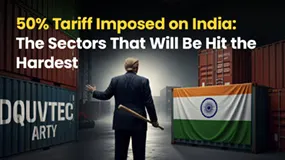Oil Prices Drop as OPEC+ Pauses Supply Hikes Amid Oversupply Fears
Oil prices fell as OPEC+ paused supply hikes for early 2026, fueling oversupply concerns. A stronger U.S. dollar added to pressure on WTI crude.
简体中文
繁體中文
English
Pусский
日本語
ภาษาไทย
Tiếng Việt
Bahasa Indonesia
Español
हिन्दी
Filippiiniläinen
Français
Deutsch
Português
Türkçe
한국어
العربية
Abstract:An expert told Business Insider that China has been the largest buyer of Saudi oil since 2009 and could be most impacted by a halt to oil exports.
Saudi Arabia's oil production was slashed in half on Saturday during an attack on two of its main oil facilities.
The attack wiped about 5% of the world's daily production of crude oil, equal to about 5 million barrels.
Yemen's Houthi rebel group claimed responsibility for the attacks, though the US has pointed a finger towards Iran.
An expert told Business Insider that China has been one of the largest buyers of Saudi oil since 2009, and could be impacted by a halt to the country's oil exports.
Visit Business Insider's homepage for more stories.
Saudi Arabia's oil production was slashed in half following an attack on two of its oil facilities on Saturday, and China, along with other countries in Asia and the Middle East, may be the ones to pay the price.
Two major oil refineries in Saudi Arabia came under attack and knocked out production on about 5% of the world's daily production of crude oil, equal to about 5 million barrels. Yemen's Houthi rebel group claimed responsibility for the attacks, though the US has pointed a finger towards Iran.
The Saudi stock index TASI fell 2.3% on Sunday before recovering, Reuters said. Other Gulf markets, including Kuwait and the United Arab Emirates, also sank.
Some analysts predicted that the attack would have a big impact on global energy prices. Oil prices rose significantly on Monday, with Brent crude trading at $66.52 per barrel on the oil futures market, according to the Washington Post, a 10% jump from Friday's close of $60.15.
Saudi Arabia accounts for 10% of the global oil output, according to UAE-based paper The National. The country stores at least 187 million barrels of reserves, it said, which could cover about 28 days of exports.
According to the Observatory of Economic Complexity (OEC), which measures international trade data, Saudi Arabia is the 26th largest export economy in the world, and its top exports are crude and refined petroleum, a multi-billion dollar industry for the Gulf state.
Analysts told The National that Saudi Arabia may be able to use its stockpile to maintain exports for up to three months in the short term as it works to rebuild.
Read more: The world's largest oil plant in Saudi Arabia was attacked ahead Aramco's plans for the biggest IPO ever
Trump says the US is 'locked and loaded,' though other countries may suffer the most
Thomas W. Lippman, a scholar at the Middle East Institute, said it was likely that China may be most affected by changes to Saudi Arabia's oil exports.
“This is not just 'Saudi Arabia's conflict' but an attack on the worldwide supply of oil,” he told Business Insider. “The country most affected could be China, which has been the largest buyer of Saudi oil since 2009.”
According to Reuters, Saudi Arabia is China's top oil supplier, year to date.
A Washington Post analysis of 2018 imports of Saudi Arabian crude oil shows that it's not just China who may feel the heat. Japan inched out China, importing $31.2 billion to China's $29.7 billion in 2018. South Korea and India also imported high dollar amounts of crude oil from Saudi Arabia.
However, in terms of what percentage of oil came from Saudi Arabia in 2018, more than 90% of Bahrain and Jordan's crude oil came from Saudi Arabia.
Lippman added that while tensions between Saudi Arabia and Iran have flared up over the incident, it is unlikely that they are headed towards a military conflict.
“Iran knows that a full-scale military conflict would bring down a destructive response from the United States, and the Saudis know it would mean crippling damage to more critical facilities along the Gulf coast — not just oil installations but water desalination plants,” he said.
And although President Trump said the US was “locked and loaded” and ready to respond to the attack, Lippman says US intervention would “would not be good for anyone.”
“Neither the US nor Saudi Arabia nor any of their friends is going to invade Iran, and Iran can't be bombed into submission, so it would be a war that nobody could win. What would be the point?”
Disclaimer:
The views in this article only represent the author's personal views, and do not constitute investment advice on this platform. This platform does not guarantee the accuracy, completeness and timeliness of the information in the article, and will not be liable for any loss caused by the use of or reliance on the information in the article.

Oil prices fell as OPEC+ paused supply hikes for early 2026, fueling oversupply concerns. A stronger U.S. dollar added to pressure on WTI crude.

Oil prices fell sharply this week as traders worried that OPEC+ might decide to pump more oil into the market at its upcoming meeting.

Finally, the day (August 27, 2025) arrived that India did not want. The imposition of 50% tariff by the US administration on most products exported from India. As per the US, the tariff is largely due to India continuing to purchase Russian oil. The extra 25% duty was added over 25% imposed at the beginning of August 2025 as India refused to stop purchasing Russian crude and defence hardware. Check out the sectors that will be hit the hardest with this tariff increase.

Top 5 things to watch in markets in the week ahead
